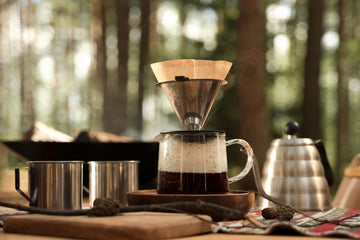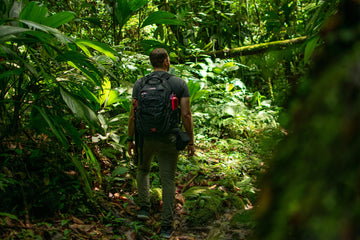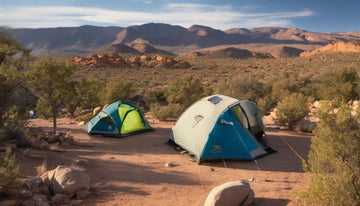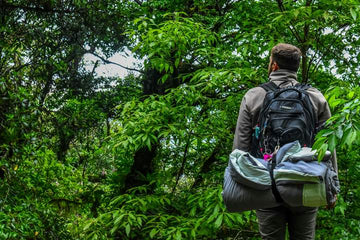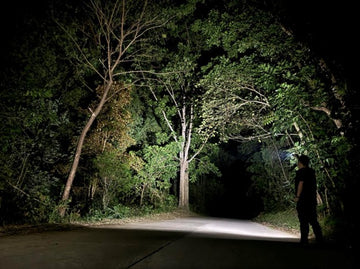
Life in the city can be tiring and drain you at the same that’s why a lot of people spend time camping to decompress and relax. As for me, I love camping away from designated campgrounds and other campers so I do Boondocking also known as Dispersed Camping. Let’s talk about it and I’ll share with you my camping best practices.
What is Dispersed Camping?
Dispersed Camping means no services like toilet, water and electricity that’s usually available in campgrounds. You can either bring your RV, car or your tent. There’s no limit in dispersed camping but always see to it that you secure permission from local government if needed and make sure to take care of our nature.Advantages and Challenges of Dispersed Camping
Dispersed Camping is ideal if you’re looking for a spot away from other campers. You will enjoy the area and nature by yourself and everything is free. Also, if you have an RV or do Car Camping you can spend an extended time at your chosen campsite absolutely free. Dispersed Camping will also develop your survival skills as you camp with your preferred tools and gears. But for me, the best advantage of dispersed camping is the privacy that you enjoy because it’s just you and nature.There are some challenges that you may encounter when you do dispersed camping. One example is when you encounter an emergency. May it be a busted tire, damaged tent, forest fire or injury because no one will be there to help you so a good and reliable communication tool such as satellite phone will be very helpful. You may also encounter wild animals so it is advisable that you study on how to interact or safely avoid animal attacks. It’s also possible that you encounter human threats like if the area is occupied by lefties, so you need to research the area before you camp to it. All these potential issues may be prevented or managed with careful planning and preparation.
How to Engage in Dispersed Camping?
I believe that nature is for everyone to enjoy so, I encourage you to step out of your comfort zone and start camping. So, how do we engage in dispersed camping? First of all, you need to identify the type of equipment that you prefer to use. For me, I love doing car camping on off-grid areas because I feel a lot safer when sleeping inside my car compared to a tent. Some people prefer hiking with their backpacks, hammock or tent. It will get you deeper in the wilderness compared to an RV Camping.Once you’ve decided on your preferred camping style, the next thing that you can do is ask your friends or look for a person who has experience in dispersed camping. It is better to ask someone with experience to accompany you on your initial camping trip. This will avoid newbie mistakes and will make your camping safe and fun.
Next, pick a spot on where to camp. It is advisable that you choose an easy terrain on your first few camping so that you’ll get familiarized with the activity. Once you get the hang of it, you can increase the difficulty of the terrain and explore deeper into the wilderness. You can start by practicing in your backyard or garage, you may spend an overnight or two to practice. Also, it is better to camp regularly for you to develop your camping skills because if you do it once in a while, you tend to forget the best practices risking errors and mistakes.
Ethical Guidelines for Dispersed Camping
When camping make sure to follow the rules set by local government on the area. Make sure to be self-sufficient because in dispersed camping areas, resources are limited and we need to preserve and take care of nature and not damage it. Manage your waste properly, when defecating, dig at least 6 inch hole and cover the waste with soil. When taking a bath, do not use soap on river or stream. Instead, collect water from the river and then use an eco-friendly soap then rinse on dry land. This method will protect the water source from contamination. Always check if campfire is allowed in the area, because some areas don’t allow campfires. Also, make sure to put out the fire before you leave the campsite to avoid forest fire. Always remember to clean as you go and leave no trace.Selecting Suitable Dispersed Camping Locations
- - When selecting a campsite, it is ideal to go to places where it was already been camped before. This will ensure you that the area is accessible. Check for information online like reviews from previous campers and check out some photos to have idea on what the area looks like.
- - Do not camp near a water source to avoid contaminating the water. Also, in some areas, camping near a water source can be challenging because of mosquitoes.
- - Camp on a bare ground to avoid damaging the plants and other living organism in the area.
- - Avoid camping in an open field or clear areas because you don’t want to be an eyesore to other campers. Don’t obstruct the view as a respect to others.
- - In some areas, local government or park rangers will ask you to login in their office so that if something happens, they have a record and they know where to find you. Make sure to comply with that rule for your safety.
- - Do your research. Watch the news, ask around, ask other campers or check the Internet. You don’t want to be a victim of lawless elements or criminals, avoid rebel infested areas as well.
Essential Gear Checklist for Dispersed Camping
Your camping gear will depend on the weather, terrain, duration, and a lot more. But here’s a list of the essential gears that you need whatever the scenario is.Flashlight - Always remember that in darkness light is everything. When camping it is ideal to bring at least two heavy duty flashlights and if weight is not an issue bring some extra batteries, the quantity of battery will depend on the duration of your camping trip. A headlamp like WUBEN H1 is a must because it is better to have a two free hands when you’re working on your campsite. Also, you need a pocket flashlight, specifically a thrower / spotlight like the WUBEN C2 so that you have something to use for mid and long range illumination. Also, the WUBEN C2 can be used as power bank in case your mobile phone needs charging. If you’re camping on an RV, you can bring as much flashlight as you want and I suggest that you bring a LED Lantern to illuminate your campsite 360°. Invest on a shock, proof and waterproof flashlight.
Cutting Tools - a high-quality knife is essential when camping. I prefer a full tang hunting knife because of its durability, and also a folding knife for pocket carry. The hunting knife is important in collecting firewood, preparing meals, starting a fire, self-defense and a lot more. A pocket knife is a good back up and vital for quick deployment.
Fire starter Kit - you need to have a reliable fire starter kit because you wouldn’t want delays in making fire. Your kit should consist of a Ferro rod, waterproof, matches, lighter and some fuel like cotton with Vaseline. Refrain from using lighters in low temperature because it won’t work when the fuel inside it freezes. Always bring an extra Ferro rod, in case you lose it, you’ll still survive the cold.
Shelter - Your shelter will depend on the type of camping that you do, others prefer car camping in an RV while other campers prefer using tent or hammock when camping. It is also important to bring a sleeping bag, sleeping pads, camping pillows, folding chairs and tables, earth mat, first aid kit and a cook set.
Communication Tool - a good communication tool is vital for your safety. Aside from your mobile phone, it is best to invest on a satellite phone so that when you’re off grid,you can still contact a relative or the authorities in case of emergency.
In this modern times people need to relax, take it slow and recuperate. I urge you to explore, and spend time with nature. Go out and try Dispersed Camping, It is a good way to get lost and find yourself again.
Related Articles

